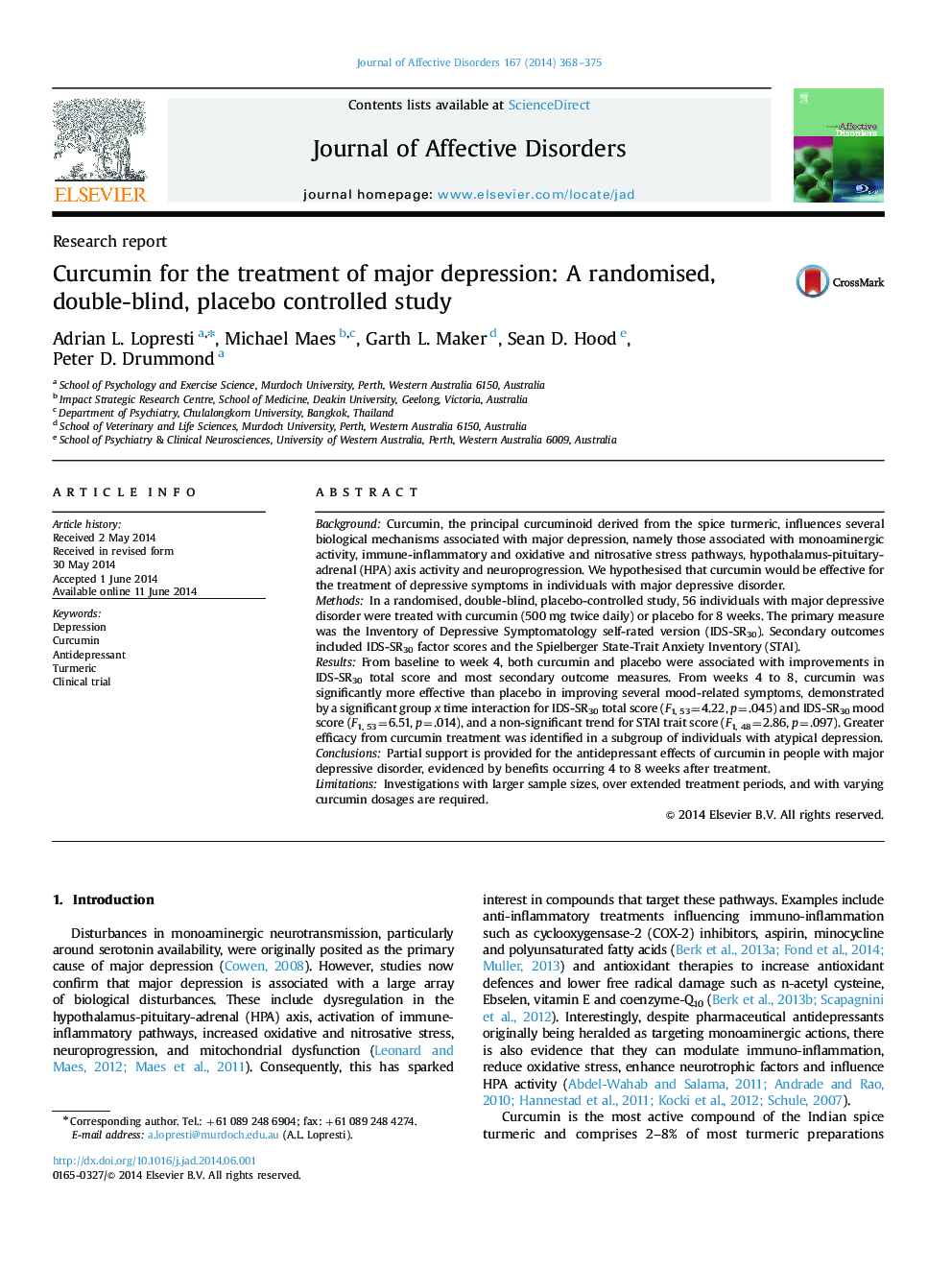| Article ID | Journal | Published Year | Pages | File Type |
|---|---|---|---|---|
| 6232730 | Journal of Affective Disorders | 2014 | 8 Pages |
BackgroundCurcumin, the principal curcuminoid derived from the spice turmeric, influences several biological mechanisms associated with major depression, namely those associated with monoaminergic activity, immune-inflammatory and oxidative and nitrosative stress pathways, hypothalamus-pituitary-adrenal (HPA) axis activity and neuroprogression. We hypothesised that curcumin would be effective for the treatment of depressive symptoms in individuals with major depressive disorder.MethodsIn a randomised, double-blind, placebo-controlled study, 56 individuals with major depressive disorder were treated with curcumin (500Â mg twice daily) or placebo for 8 weeks. The primary measure was the Inventory of Depressive Symptomatology self-rated version (IDS-SR30). Secondary outcomes included IDS-SR30 factor scores and the Spielberger State-Trait Anxiety Inventory (STAI).ResultsFrom baseline to week 4, both curcumin and placebo were associated with improvements in IDS-SR30 total score and most secondary outcome measures. From weeks 4 to 8, curcumin was significantly more effective than placebo in improving several mood-related symptoms, demonstrated by a significant group x time interaction for IDS-SR30 total score (F1, 53=4.22, p=.045) and IDS-SR30 mood score (F1, 53=6.51, p=.014), and a non-significant trend for STAI trait score (F1, 48=2.86, p=.097). Greater efficacy from curcumin treatment was identified in a subgroup of individuals with atypical depression.ConclusionsPartial support is provided for the antidepressant effects of curcumin in people with major depressive disorder, evidenced by benefits occurring 4 to 8 weeks after treatment.LimitationsInvestigations with larger sample sizes, over extended treatment periods, and with varying curcumin dosages are required.
